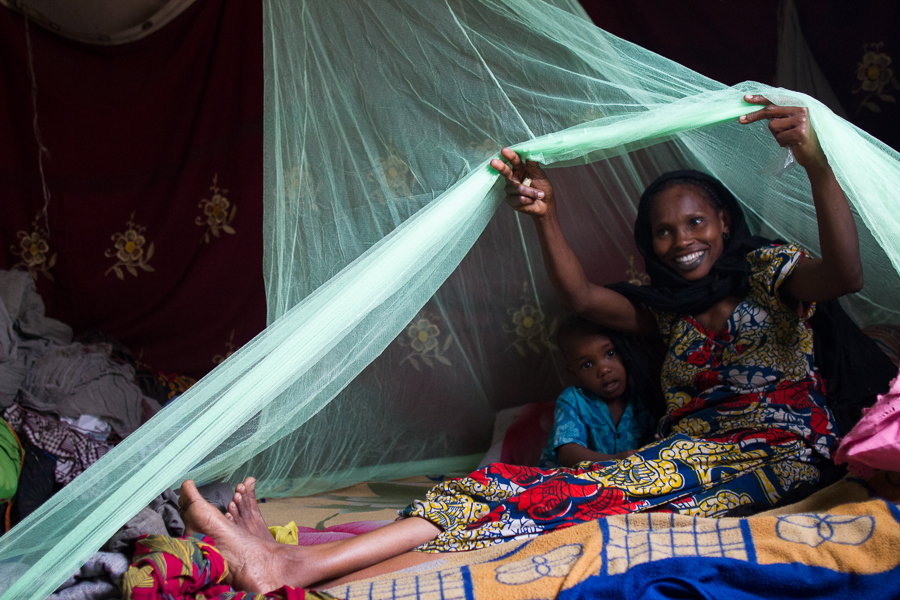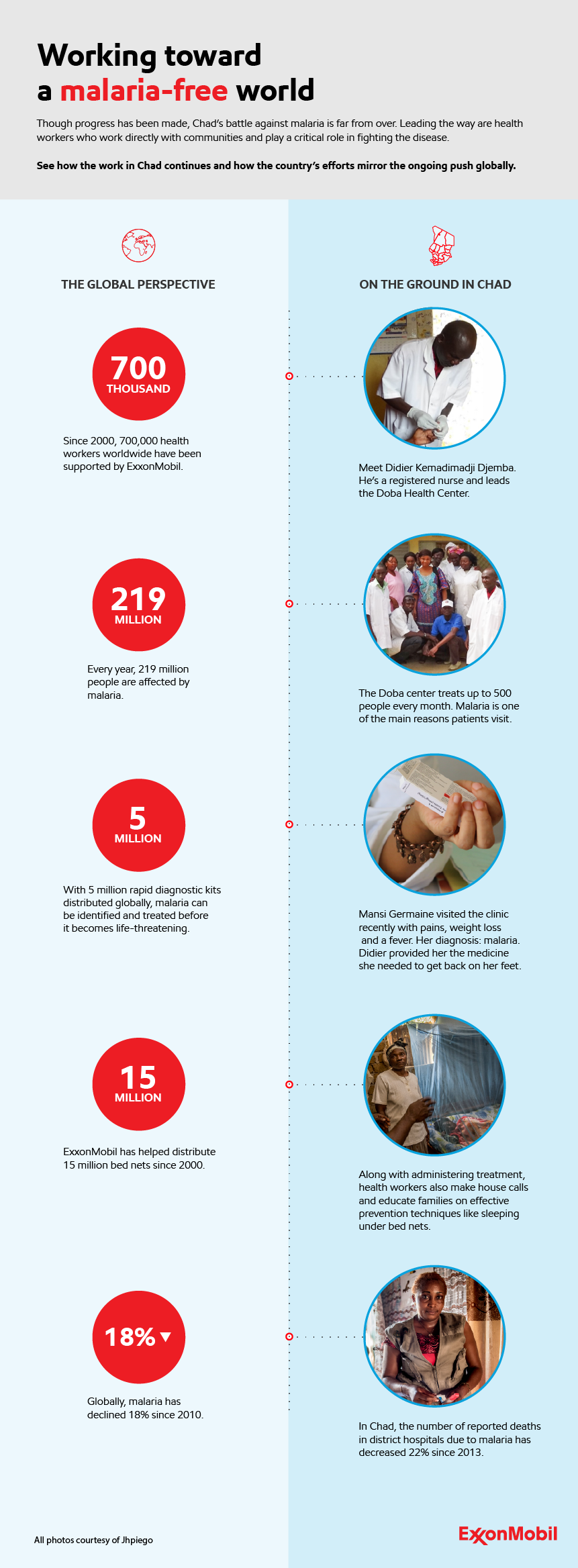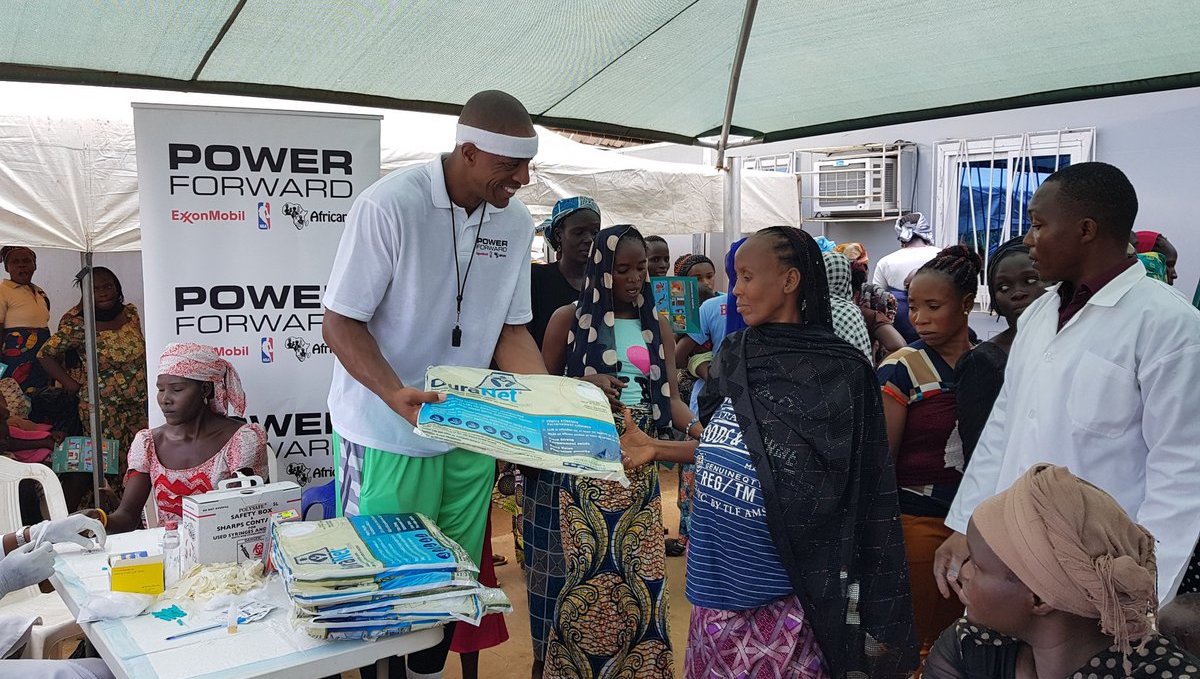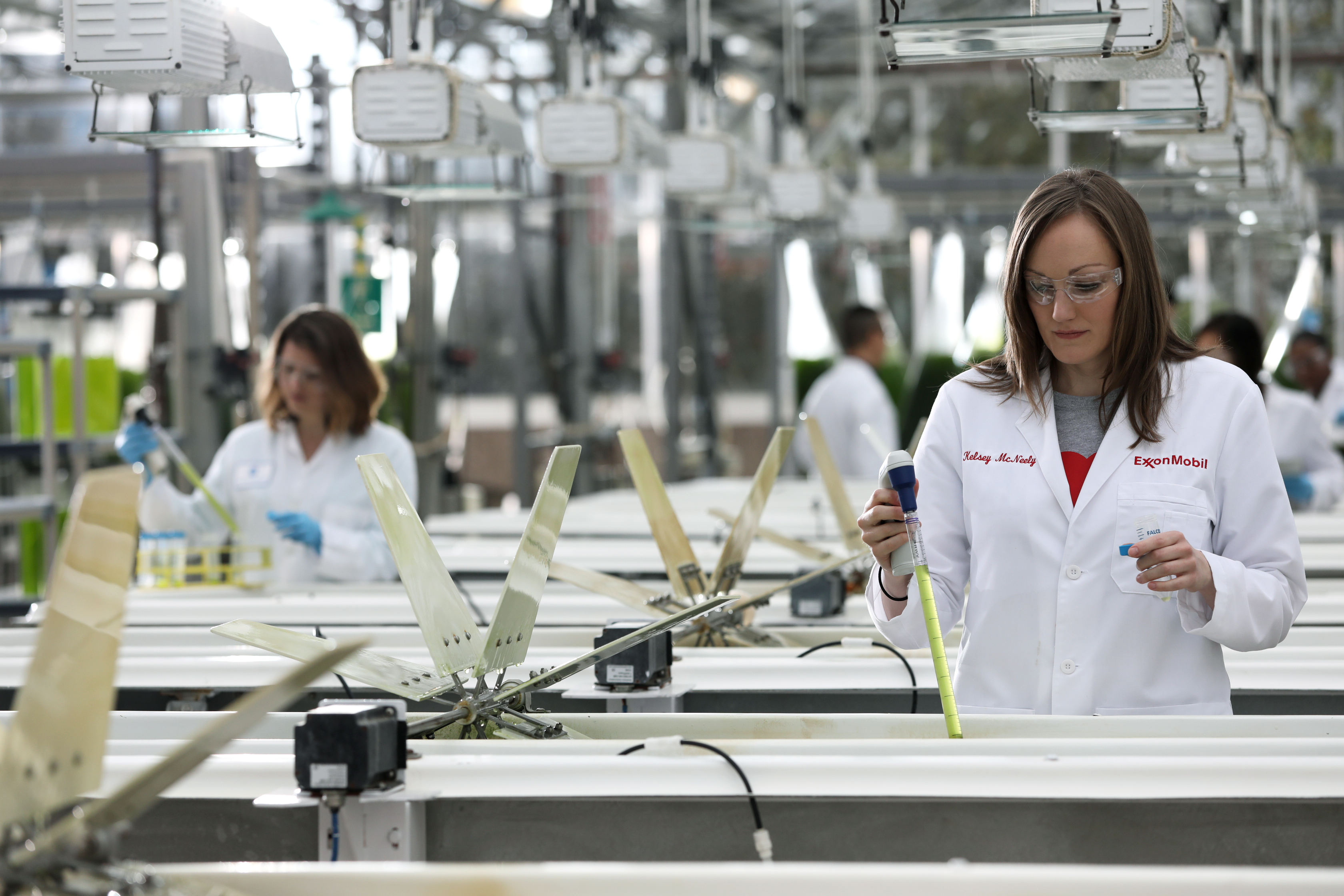Malaria is preventable, treatable and curable, yet it continues to impact the lives of millions of people every year.
There’s no doubt progress has been made – both overall infection rates and death rates have decreased significantly1 over the past two decades. According to the World Health Organization, however, progress continues to be challenged in places like Nigeria and Mozambique. To make further progress, at-risk communities, which account for almost half the world’s population2, will need unwavering support.
ExxonMobil has invested more than $170 million over almost 20 years to help fight the disease. These investments support local and global organizations that develop public awareness initiatives, distribute bed nets and lifesaving treatments, and train local health workers.
Didier Kemadimadji Djemba is one of those health workers. He leads the Doba Health Clinic, one of the many clinics in Chad supported by the ExxonMobil Foundation.
“The progress we’ve made is mainly the result of improvements in how malaria has been managed,” says Didier. “This includes regular health worker training, supportive supervision and the increased availability of supplies like medicine, bed nets and materials for community education.”
Health workers like Didier are essential in fighting malaria because they provide critical on-the-ground treatment and prevention education to local communities.
On this World Malaria Day3, see how health workers like Didier in Chad, and others around the world, are continuing to fight for their communities in the battle against the disease.
Sources:






